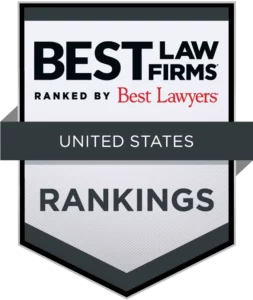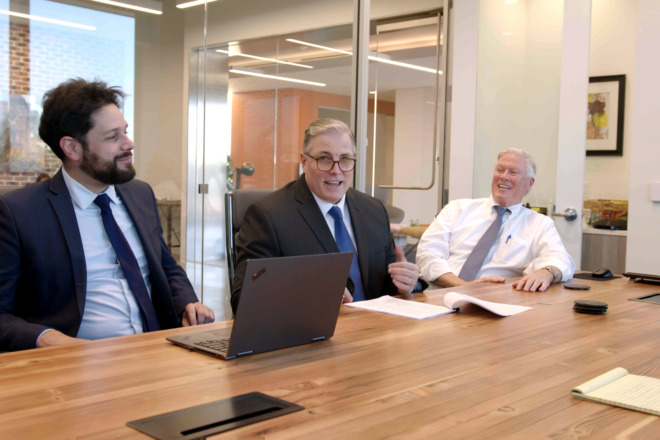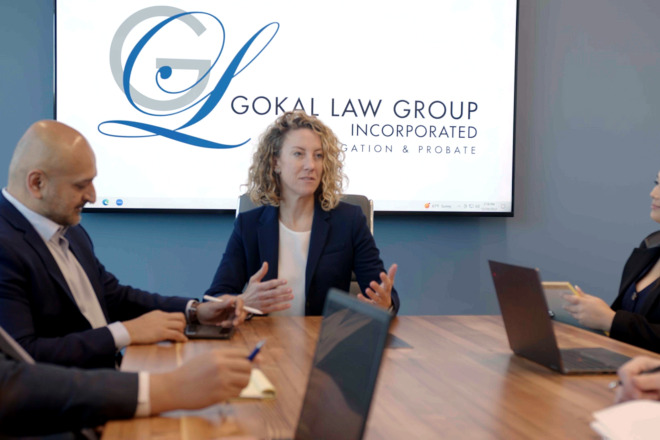-
ORANGE COUNTY TRUST LITIGATORS
Specializing in Trust Litigation, Estate
Administration, and Probate Law
About Our Firm
Gokal Law Group are your trusted partners to guide you through the complex process of trust litigation, estate administration, and probate. Our attorneys are highly specialized in helping trustees administer their estates and trusts, fighting for beneficiaries who have been wrongly excluded from trusts or wills, and elders who have been preyed upon by caretakers or “friends.”
It is our compassion and empathy that motivates us to relentlessly fight for our clients’ rights.
Practice Areas
The Gokal Law Group team touts a polished record of success for our clients, resolving hotly contested estates and trusts. Our knowledge of probate and trust law guides our clients to properly administer a trust, navigate through the complexities of probate, and battle contested trusts or wills.
Our motivation to succeed starts with a fierce devotion to our clients, whom we relentlessly advocate for time and again. Click below to learn more about the areas of trust litigation, estate administration and probate.
What Our Clients Are Saying
“I have had a fantastic experience with all of Gokal Law Group. I am so grateful Abbas Gokal took my case. There were many times during the case that were very sensitive and emotional and Abbas handled everything professionally and with care. He is genuinely a kind person. Everyone I interacted with at the firm were professional and helpful. The outcome for my case was a great blessing to my family. I highly recommend this firm and if need be, I will absolutely count on them again.”
- Charmaine Neighbors
“Abbas and his team at Gokal Law Group really came through for me and my sister. From the initial consultation to the successful settlement, Abbas was always there for us. He came highly recommended, and he and his team certainly deserved the recommendation. If you need someone you can trust to come through for you, Abbas Gokal and his team are the right choice.”
- Adam O.
“I would like to take a moment to thank Abbas and Alison Gokal for the amazing job they did with my case. Lawsuits can be very stressful, but with Abbas and Alison’s knowledge, experience and level of professionalism I felt very confident in having them represent me.
I am also thankful that I was not treated like a dollar sign but as a client they really cared about. I truly felt that they went above and beyond the call of duty to ensure that I was comfortable throughout this daunting process, and for that I am truly grateful.”
- Shana T.
“Gokal Law was very supportive, helpful and guided us through the whole legal process. As a result, we won our case. They are easy, lovable, enjoyable folks to get along with, they have a great sense of humor, and they will make you feel at ease.”
- Kevin
Recent Articles
Can a Trustee Live in a Trust Property in California?
A trustee must perform a balancing act when administering the trust. Their obligations include managing trust assets, acting in the … Read More
Can a Beneficiary Stop the Sale of a Property in California?
When you are the beneficiary of a trust or estate, the trustee or executor has a responsibility to act in … Read More
Get A Free Consultation
The attorneys of Gokal Law Group, Inc. hold a glowing track record of successful judgments and settlements. As advocates for wronged beneficiaries, trustees battling greed, elders facing financial abuse, and families who have recently lost a loved one, we’re here for you.





